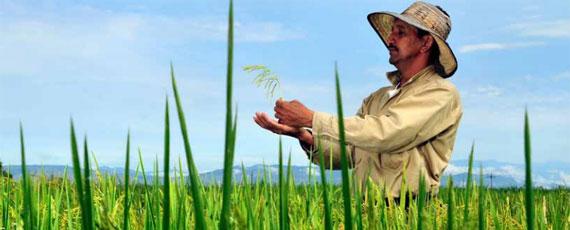What’s Next for Biofortification in South Asia Post-Kigali?

Online discussion considers the future role of biofortification
Prakash Shetty describes a recent discussion on biofortification between stakeholders in the South Asia region.
An interactive online webinar (web based conference) – 4th in a series of 5 - was held on 26 November. The discussion was of specific interest to LANSA partners in the region. Organised by Harvestplus, and MSSRF alongside LANSA, the webinar series was a follow–up to the successful Second Global Conference on Biofortification, co-hosted by the Government of Rwanda at Kigali earlier in this year. The webinar in the South Asian region, was aptly titled “What's Next for Biofortification in South Asia Post-Kigali?”. It began with two power-point presentations.
The first presentation was given by Dr. Howarth Bouis, Director of HarvestPlus and the second by Professor Swaminathan of MSSRF, Chennai in India. Dr Bouis quoted the Minister of Agriculture of Nigeria who had stressed the importance and potential of biofortified crops by stating in Kigali that these crops were going to be game-changers in dealing with the issue of malnutrition in the world today. Dr Bouis explained that biofortification was one strategy, that together with others can improve nutrition of populations worldwide. In addition to enumerating human nutrition studies that provided evidence of the efficacy and bioavailability of biofortified crops, he provided a global view on the varieties of crops introduced in Africa and Asia to improve the nutritional intakes of vitamins and minerals in these regions. He spoke about the Kigali Declaration and the follow-up actions outlined at the Global Conference and the role to be played by the numerous stakeholders.
Professor Swaminathan's emphasised that biofortification was a tool that can be leveraged and integrated into farming systems to address nutritional deficiencies like anaemia, vitamin A deficiency and protein-energy malnutrition in South Asia. He explained that an intervention he had designed, Farming Systems for Nutrition, involved ‘the introduction of agricultural remedies to the nutritional maladies prevailing in an area’. He outlined the key requirements for success from field trials to the consumer and highlighted the roles of the State through policy support and the participation of the private sector and civil society to make this approach a success.
Prominent individuals and organisations in the region shared their own experiences and contributed to the fruitful discussions that followed.
For more information on the Global Conference including the Kigali Declaration.








Add new comment